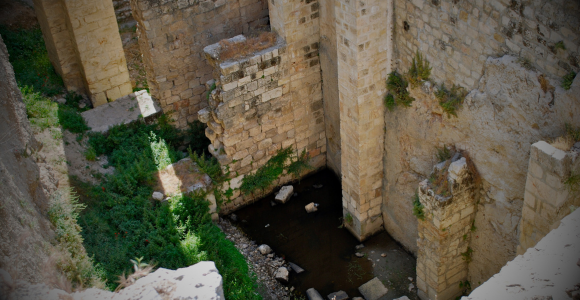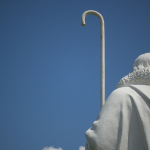
Our reading this week is from the gospel of John:
“Some time later, Jesus went up to Jerusalem for one of the Jewish festivals. Now there is in Jerusalem near the Sheep Gate a pool, which in Aramaic is called Bethesda and which is surrounded by five covered colonnades. Here a great number of disabled people used to lie—the blind, the lame, the paralyzed. One who was there had been an invalid for thirty-eight years. When Jesus saw him lying there and learned that he had been in this condition for a long time, he asked him, “Do you want to get well?”
Welcome Readers! Please subscribe to Social Jesus Here.
This is Part 1 of The Jesus Story and Living with Disabilities
“Sir,” the invalid replied, “I have no one to help me into the pool when the water is stirred. While I am trying to get in, someone else goes down ahead of me.”
Then Jesus said to him, “Get up! Pick up your mat and walk.” At once the man was cured; he picked up his mat and walked.
The day on which this took place was a Sabbath,” (John 5:1-9)
In her book The Disabled God: Toward a Liberatory Theology of Disability, Nancy Eiseland writes, “Living with a disability is difficult. Acknowledging this difficulty is not a defeat, I have learned, but a hard-won accomplishment in learning to live a life that is not disabled. The difficulty for people with disabilities has two parts really—living our ordinary, but difficult lives, and changing structures, beliefs, and attitudes that prevent us from living ordinarily” (Italics/emphasis added, p. 13). This week, I want to push back against two things that make “living ordinarily” difficult for folks with disabilities: the way the Jesus story was originally written and specific Christian attitudes and beliefs.
First, I understand that whomever the gospel authors were, they were writing the versions of the Jesus story in our sacred canon today within the context and setting of their own time and culture. I get that. Nonetheless, how the Jesus story is often told when it comes to folks with disabilities is still damaging. We can tell the Jesus story in a more life-giving way for this community, and we must. It’s not optional. Everyone will eventually experience disability. It makes sense to address and ease this experience that is or will be so common, and does impact everyone in some way whether as care receiver or caregiver.
Let me give you just one example of the four gospels’s language. We’ll begin with this example, in Part 2.
Are you receiving all of RHM’s free resources each week?
Begin each day being inspired toward love, compassion, justice and action. Free.
Sign up at HERE.















